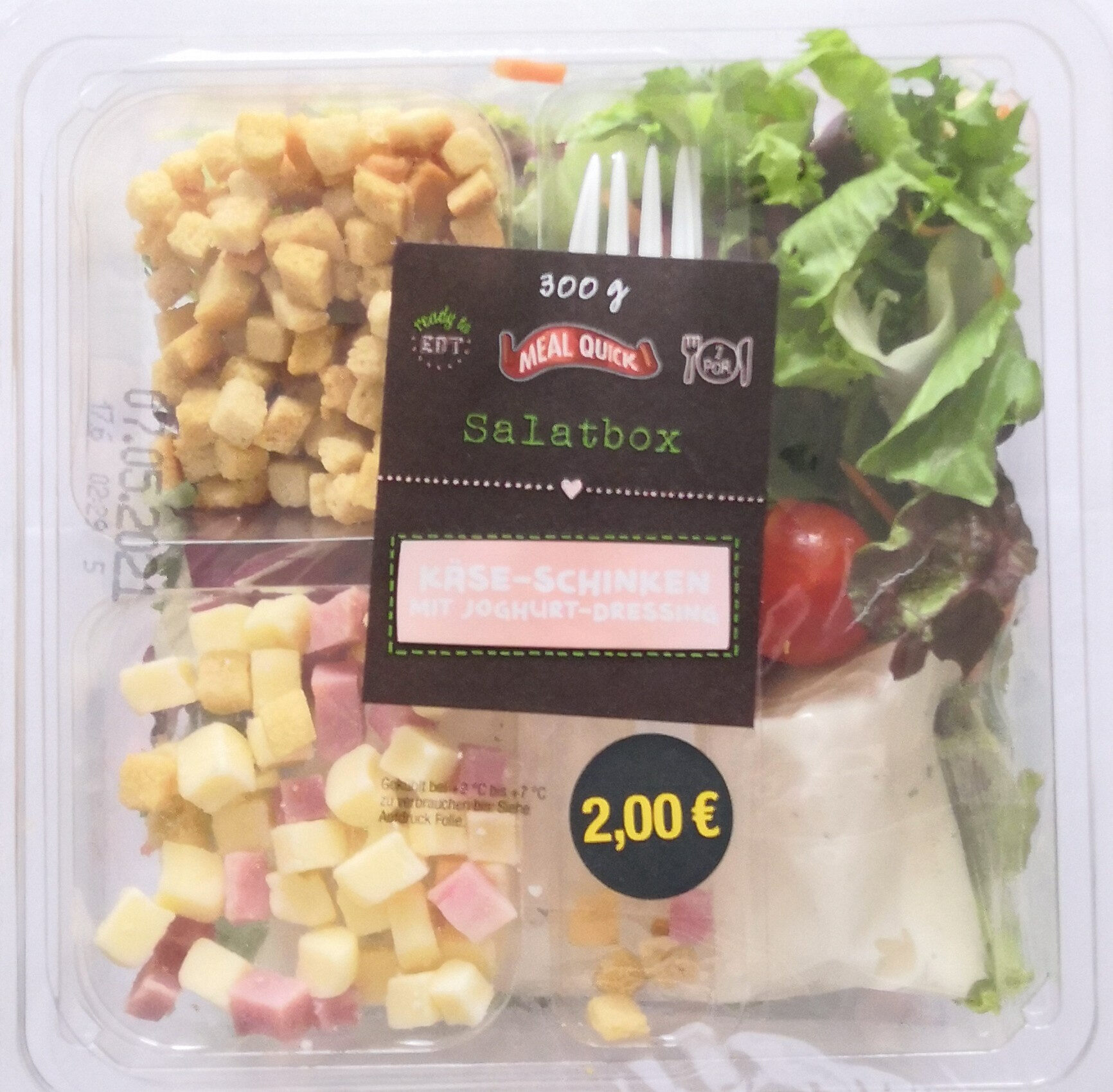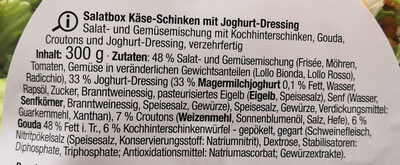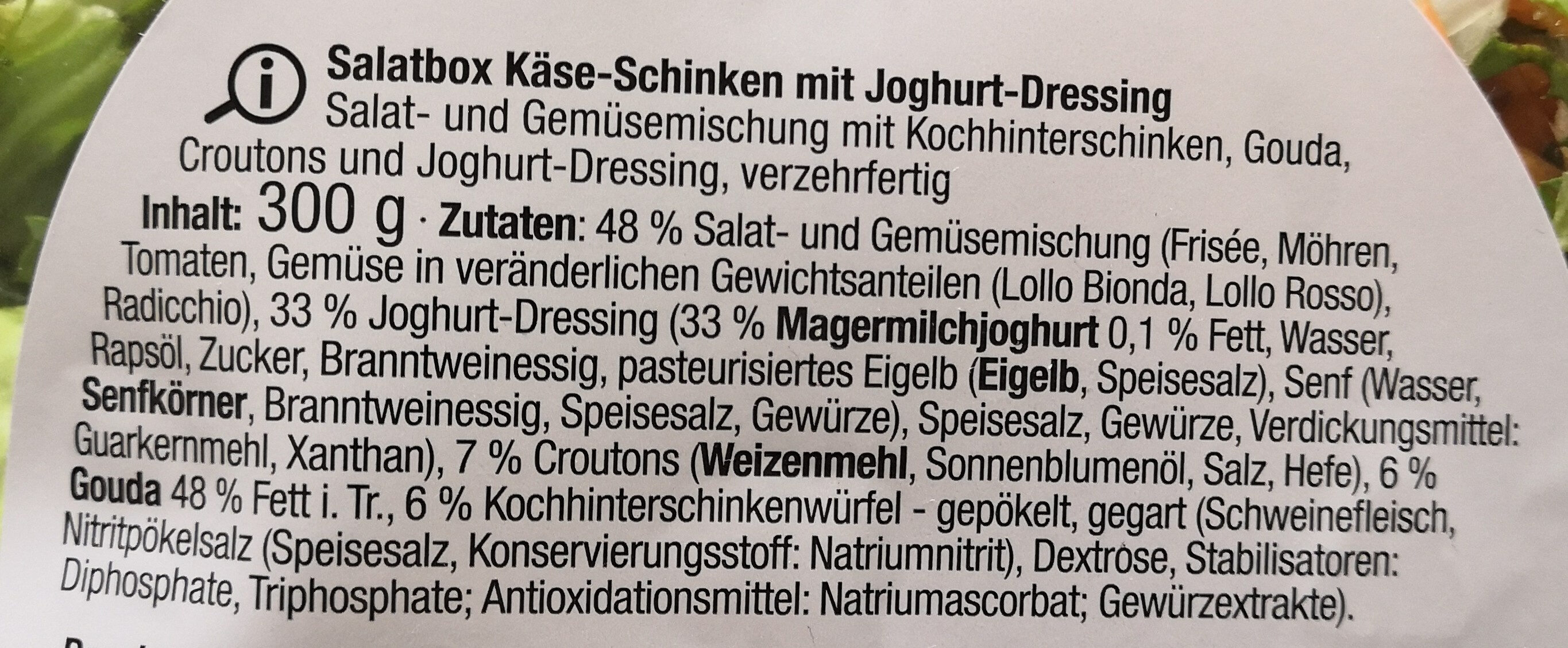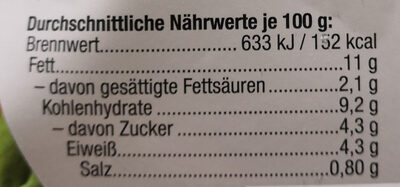Meal Quick Salatbox Käse-Schinken mit Joghurt-Dressing - 300 g
This product page is not complete. You can help to complete it by editing it and adding more data from the photos we have, or by taking more photos using the app for Android or iPhone/iPad. Thank you!
×
Barcode: 4000876955080 (EAN / EAN-13)
Quantity: 300 g
Packaging: Plastic
Brands: Meal Quick, Tacken
Categories: Meals, Prepared salads, de:Salatmenü, Salads
Origin of ingredients: Germany
Manufacturing or processing places: Schwalmtal, Deutschland
Stores: NETTO
Countries where sold: Germany
Matching with your preferences
Environment
Packaging
Transportation
Report a problem
Data sources
Product added on by openfoodfacts-contributors
Last edit of product page on by packbot.
Product page also edited by off.d7db9a9e-9ce7-44b9-bb2f-c6e9743cd22d.
If the data is incomplete or incorrect, you can complete or correct it by editing this page.










